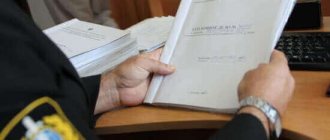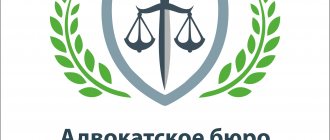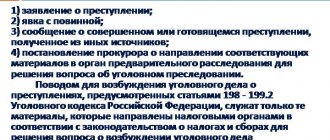Inquiry: what is it
In order to understand what an inquiry is in an abbreviated form, it is necessary to understand what a standard inquiry is.
So, this term refers to activities of a criminal procedural nature, which are carried out by government agencies that have the authority to do so, and by the officials working in them.
An inquiry in an abbreviated form is not much different from a traditional one, but there are significant nuances that must be taken into account
Table 1. Purposes of the inquiry
| Goals | Description |
| Identification of the criminal | During the investigation, it becomes clear which of the suspects and accused is the actual attacker who caused harm to the victim. |
| Finding out the circumstances of the crime | The second purpose of the inquiry procedure is to establish the circumstances within which the crime was committed, which can subsequently seriously affect the accusation and the final preventive measure assigned to the offender. |
The current norms under inquiry mean only this type of investigation carried out:
- before legal proceedings in a criminal case for which there are no requirements for a mandatory preliminary investigation;
- as a comprehensive way to conduct an investigation into a specific criminal case.
Inquiry is a procedure of a pre-trial nature
Exceptions
In what cases is the abbreviated form of inquiry not used? The Code of Criminal Procedure does not allow a simplified procedure when:
- The suspect is a minor.
- Availability of grounds for application of the provisions of Chapter. 52 Code.
- Implementation of compulsory medical measures.
If these circumstances are identified, the implementation of this investigation option may be terminated at any time until the judges are removed to the deliberation room. Similar consequences are provided if the victim, suspect/accused expresses a desire to terminate the investigation in a simplified form.
Inquiry in abridged form: application
The application of the abbreviated inquiry procedure we are considering can only be applied in a situation where:
- a criminal case has been opened;
- the person accused of committing a crime admits his guilt, and also confirms the imputed nature of the harm and its final amount;
- the offender refused to challenge the legal assessment of his actions, which was given in the resolution issued in connection with the initiation of criminal proceedings.
The basis for conducting such an inquiry may be a petition filed by the suspect within two days after he was informed of the right to submit a document.
An abbreviated inquiry is carried out if a corresponding petition has been received
Rules for considering an application
It is impossible to submit an application orally; it is accepted only in the form of a handwritten application on paper, which must be endorsed upon completion:
- a person suspected of committing a crime;
- representative of the legal defense of the person.
After the paper is submitted to the investigator, he undertakes to do the following within 24 hours:
- reviewing the information contained therein;
- making a decision regarding the satisfaction of the requests specified in the petition, or, conversely, refusal to do so.
Most often, the decision is positive, however, provided that there are objective obstacles that make it impossible to carry out the inquiry procedure in an abbreviated form, you will be denied.
Code of Criminal Procedure of the Russian Federation Article 226.4. Petition for conducting an inquiry in an abbreviated form
Is it possible to refuse an inquiry in an abbreviated form?
All of the following entities may refuse to conduct an abbreviated inquiry process at any stage of consideration of a committed criminal offense:
- a person suspected of committing an unlawful act;
- accused citizen;
- a person who is a victim of a crime.
The refusal will also need to be formalized in writing by submitting a statement of appropriate content to the investigator for consideration.
Time frame for conducting an inquiry in a shortened form
If a person who is an inquirer has issued a resolution to conduct an inquiry in an abbreviated form, then the investigation conducted in relation to the criminal case under consideration must be completed within the period established by law, which is 15 days from the date of commencement.
However, provided that the prosecutor sees special circumstances in the case, this period may be increased by the prosecutor by 5 additional days.
Code of Criminal Procedure of the Russian Federation Article 226.6. The inquiry period in a shortened form
Concept
Whether a citizen is guilty is determined by the court during the judicial investigation. His decision is based on the conclusions and facts obtained by the competent authorities in the process of studying the circumstances of the case.
The study is carried out within the framework of:
- pre-trial investigation;
- inquiries.
There is no precise definition of these types in the legislation. There are only their characteristics, a description of the procedure. The range of offenses (crimes) for which it is established is also determined (Code of Criminal Procedure, Art. 150, Part 3). In the case when the crime is not included in this list, but has all the signs that allow an investigation, the latter is appointed by the prosecutor (necessarily in writing).
Now about the procedure itself.
When choosing such a type as an abbreviated form of inquiry, the Code of Criminal Procedure of the Russian Federation requires that the following conditions be met:
- There is a citizen who has committed an offense.
- There are signs of a criminal act.
- The man admitted to committing the crime.
- Knows the essence of his actions.
- Aware of the consequences.
- Knows the damage he caused.
- He does not dispute the legal assessment.
- Requests a simplified procedure for him.
Today, inquiry is defined only as a short form of investigation, simplified and shortened in time (Code of Criminal Procedure, Chapter 32). Initiated against citizens if they commit an act, the severity of which is defined as medium or small.
In what cases is the abbreviated form of inquiry not applicable?
There is a list of circumstances in the presence of which the form of the inquiry process that interests us cannot be applied in practice.
So, for example, its initiation is completely excluded if the suspect:
- has not yet reached the age of 18, that is, is not considered fully capable;
- does not know how to speak the language in which the criminal proceedings are conducted;
- the victim expressed disagreement with this form of inquiry;
- There are grounds for compulsory treatment in medical institutions.
Code of Criminal Procedure of the Russian Federation Article 226.2. Circumstances excluding the conduct of an inquiry in an abbreviated form
General procedure
The essence of the inquiry procedure is the study of the circumstances of the offense of an already identified person in order to give a legal assessment of the act. But not any act is assessed, but only that which is included in the list established by the legislator (Code of Criminal Procedure, Article 150, Part 3).
Procedure and scheme of actions of the parties:
- The case, guided by Art. 140, opens with a decree, the essence of which is its opening (excitement). Compiled by an official authorized to conduct investigative actions.
- During the first interrogation, at the very beginning, the suspect is introduced to his rights, in particular, that he has the right to submit a request for an abbreviated inquiry in relation to him. The fact that the suspect is familiar with his rights is recorded in the protocol (requirements of Article 226, Part 1, Code of Criminal Procedure).
- The petition must be drawn up in writing and submitted within 2 days, but no later than this period. In case of delay, the deadline can be restored by an appropriate resolution only if the error was made for a good reason. The deadline for consideration of the application is one day (24 hours).
The investigation body has two decision options: approve or refuse.
Refusal may occur when there are circumstances that prevent this type of inquiry.
If the petition is granted, then a notification is sent to all participants (the suspect, his defense, and the victim). Must be completed within 24 hours or later. The duration of this procedure is 15 days.
Exceptions
There is a category of citizens and a number of circumstances when conducting this type of investigation is impossible.
The form does not apply if:
- The suspect is under 18 years old. That is, he is a minor.
- Committed several crimes.
- There are medical reasons.
- The suspect does not speak the language of the investigation.
- Objects to such an investigation.
The legislation of the Russian Federation establishes how an inquiry is carried out in relation to individual citizens for whom a special investigation procedure applies, for example, deputies, judges, etc.
Unlimited jurisdiction
This means that the person conducting the abbreviated inquiry has the right to apply this procedure (within the jurisdiction) to all cases, regardless of the factors:
- Numbers of deeds.
- How many times the offense was committed. Once or several times, it doesn’t matter.
There are circumstances that make it possible to apply the provisions laid down in Chapter 52 of the current Code.
Rights and obligations of the parties
It can only be noted that the official conducting the investigation has the right during his work:
- do not order additional examinations;
- do not conduct additional questioning of witnesses if the case already contains their explanations.
Actually, they are no different from those established by the general rules for all participants in investigative actions, regardless of the form of the investigation.
Suspect's consent
A simplified inquiry procedure can only be carried out when there is the consent of the suspect. But this is not the only condition. In addition to consent, there must also be an admission of guilt.
Actually, recognition precedes agreement. That is, first he admits to what he did and only then agrees to a simplified procedure. However, for it to begin, the citizen must be recognized as a suspect.
The sequence of the case is as follows:
- Initiation of a case.
- Confession of the suspect.
- Obtaining his consent.
First, the investigative agency must obtain irrefutable facts indicating that this particular person committed a criminal act. Then a criminal case is initiated against him. Then he is declared a suspect. Then recognition and agreement to a simplified procedure.
Consent of the victim
The investigator is obliged to obtain the consent of the victim to conduct a simplified procedure before he provides such an opportunity to the suspect. He has a day to do everything about everything. The consent of the victim is formalized in writing, but after the essence of this form, its procedure, and the consequences of the investigation for him personally and for the suspect are explained to him.
It is important to note:
- The consent of the victim precedes the petition of the suspect.
- He has the right to withdraw his consent at any stage.
If the victim has given consent, then he still has the right to refuse it, demanding that an investigation be carried out in the general manner. Moreover, he can do this at any stage of the investigation, right up to the moment when the indictment is sent to the prosecutor’s office for approval.
How is an inquiry conducted?
According to the letter of the law, the investigator must carry out only those procedures, the refusal of which may subsequently lead to complete and irrevocable loss:
- traces of a malicious unlawful act;
- evidence of guilt of the suspect and accused;
- similar kinds of objects.
The designated official also has the right to refuse to interrogate citizens who provided explanations during the inspection regarding the crime.
If, during the verification stage that took place before the start of the investigation, various studies took place, and experts gave conclusions on them, then the investigator may refuse to order a forensic examination.
In the presence of certain circumstances, the investigator may refuse to carry out standard pre-trial procedures
Please note an important nuance: at the end of such a production procedure as an inquiry in an abbreviated form, an indictment is issued to one or another person. In the case where the abbreviated form of this process is applied, the preventive measure assigned to the defendant cannot be more than one half of:
- the maximum term provided for this punishment;
- the most severe punishment of other types provided for this crime.
If the inquiry had been carried out in full, this requirement would not have been raised.
During the abbreviated inquest, the mystery turns into reality
How to file an application
The citizen himself, who became the culprit of the crime, can submit a petition for the inquiry to take place in this form. To do this, a number of conditions must be met:
- the case was initiated against this person based on the characteristics of the offenses listed in paragraph 1 of Part 3 of Art. 150 Code of Criminal Procedure of the Russian Federation;
- the citizen admitted his guilt in committing the crime and does not challenge the legal assessment of his actions;
- he agrees with both the extent of the damage caused and its nature.
This document is drawn up in the name of the investigator, who must make a decision on it within 24 hours. It should only be in written form. It must provide an argument as to why the person wants the inquiry to be in this particular form and provide the circumstances of the case. At the end there must be the signatures of the citizen himself and his lawyer.
Completing the procedure
The end of the inquiry in a simplified manner is regulated in Art. 226.7 Code of Criminal Procedure. It should be said that the legislator included the process of familiarization with materials during the period of the procedure under consideration. Thus, the general procedure for carrying out the investigation was chosen. According to experts, this provision is not consistent with the idea of a simplified procedure, especially since the process must be completed by the time the materials are provided. In accordance with Art. 226.7 part 5, if it is impossible to complete the familiarization of the victim, his representative, the suspect and his defense attorney within the time period specified in part 4 of this article, the inquiry continues in the general manner. This provision requires 3 days, during which the parties to the process are provided with the case materials. Considering that this period is included in the shortened inquiry period, its actual duration may be 9, and not 12 days, as was previously revealed.








